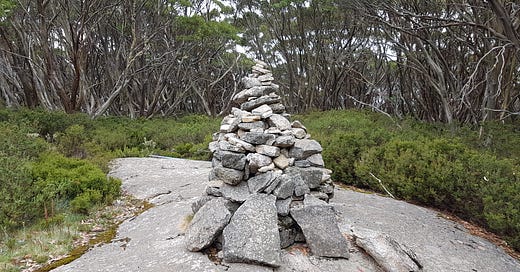A commonly told story, of unknown origin, is that of the philosophy professor standing in front of his class with an empty jar. He proceeds to fill this with rocks, then pebbles, then sand. After each, he asks the class whether the jar is full, each time to the response of ‘yes’. The point for illustration is that if he had done so in the opposite order, he would only have had sand in the jar.
The metaphor being; if you ensure the important things are in place first, the rest can fill in the other spots. Or in life if you ensure the key priorities are in place then the rest of your time can be used on progressively less important things rather than filling your life with unimportant things which prevents you doing important things.
In researching the origins of this story I actually came across some opposition to the key points it illustrates which I found to be interesting, but I guess like most things, there is a shade of grey in the black and white of the opposing viewpoints which is the reality of optimal function. Regardless, the key message of this story is worth noting in respect to health and performance.
And that is; make sure your focus is on the most impactful ‘big rock’ factors first because these are both the most important and will have the greatest positive benefits. From there, progressive focus on smaller factors is reasonable.
What does this look like in real life?
Diet:
Big rocks; Eat a large variety of unprocessed foods, mostly self-prepared, get enough protein.
Pebbles; Sourcing
Sand; Eating patterns, supplements
Exercise:
Big rocks; Consistency, total amount, focus, tracking/recording progress
Pebbles; Program
Sand; Equipment, latest fads in training, supplements
Sleep:
Big rocks; sleep hygiene- regular sleep and wake times, dark cool room, stress management, avoid stimulants late in the day, avoid alcohol in the evening
Pebbles; ear plugs, eye mask
Sand; weighted blanket, supplements
Stress management:
Big rocks; Awareness around stressors and things that aid you in stress management, time with friends and family, time to relax in your day/week/month
Pebbles; Heat/cold modalities, massage
Sand; Supplements to aid relaxation
Recovery:
Big rocks; Appropriate load (modified for total stressors), sleep, nutrition, stress management
Pebbles; Body work, recovery sessions
Sand; Compression, supplements
Productivity:
Big rocks; Consistency, focus, prioritisation, deep work
Pebbles; Routines
Sand; Nootropics
Athletic Performance
Big rocks; Consistency, focus, loading, sleep, nutrition
Pebbles; Specifics of the program
Sand; Gadgets, supplements
Things to note about the big rocks and even perhaps a heuristic to find them:
They are probably the advice given to you by your parents, or grandparents (or perhaps what they did rather than advice they gave you)
They have no marketing, branding or PR
They are often simple but not necessarily easy
They are often not that interesting
The ‘big rocks’ paradigm/message aligns well with many other things in the productivity/performance space. For example, the ‘Pareto principle’ (or 80/20 principle) which suggests that 20% of the work gives 80% of the benefits. The big rocks are the foundational building blocks but also highest yield (and arguably simplest) factors to address. So much so, that it is almost futile focussing on the sand or even the pebbles at times. That not to suggest these have no bearing or are not helpful but merely the magnitude of effect of the big rocks is significantly more.
I have also heard this explained through the metaphor of a cake; the cake being the rocks and the icing being the sand to equate this to the rocks analogy, the advice being: don’t make a cake out of icing.
So, in all things: focus on the big rocks first, then the pebbles and finally the sand. No matter how fun or attractive, or well branded, the sand is.





Your point about the metaphor assuming equal resource allocation for 'big rocks' and 'sand' is particularly poignant. It highlights a crucial aspect of decision-making and prioritisation: the need to assess and allocate resources according to the specific demands and benefits of each task or goal. This reflection adds depth to the initial discussion and reminds us that while models like the 'big rocks' can guide us, they must be adapted to fit the intricacies of our individual lives. I appreciate your reference to the idea that "all models are wrong, some models are useful." This maxim serves as a reminder that while models and metaphors can provide guidance and framework, they are not absolute truths but tools to aid in understanding and decision-making. Thank you and please keep them coming.
Very informative David, it offers valuable insights into the importance of prioritising key elements in various aspects of life. While the metaphor is well-explained, would be interesting to hear your thoughts on potential limitations or challenges in applying this principle in real-life scenarios.